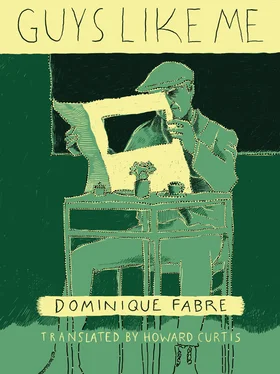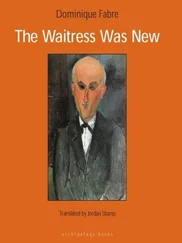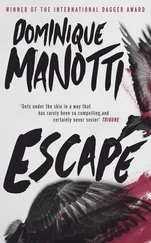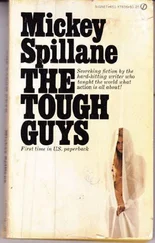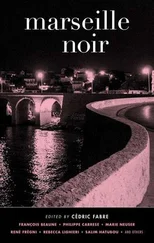
“I know almost nothing about him,” I said to Marco.
We were both sitting in his living room, the picture window wide open at the end of April. It was as if the trees had spread the word, the ones beside the Seine seemed incredibly green, as if they weren’t yet used to it. I remembered how when my father, who I hadn’t known very well, died, I was twenty-four at the time, the sun came through a stained glass window in the transept of the church of Notre Dame de la Croix in Ménilmontant and hit my forehead.
“I remember a bit,” Marco replied. “Don’t you remember how friendly he was to us?”
“Yes, it’s true.”
We were sitting side by side, with the sun facing us. He told me you couldn’t see anything when the sun shone, that he’d been wanting to put in blinds for a long time, but his sadness had nothing to do with that, when it came down to it.
“What time are we supposed to be there, shall we go?”
“We have time, you’ve already asked me twice,” he said.
We drank another coffee.
“I hadn’t seen him for about a year, I think. I didn’t know it was so serious, what he had.”
“He never said, he didn’t want anybody to know,” Marc-André murmured. “He didn’t want it, you know. Did you tell the people in Asnières?”
“Yes, everybody I could remember.”
We talked some more about guys, old friends we’d lost touch with, after a while it became painful to live with too many of these memories, it’s age, Marco said. And time. You can’t do anything against time. Finally we left for the ceremony.
Jean hadn’t arrived yet. He’d found a little job thanks to Marc-André. We went along a row of seats that wasn’t too far back. A woman in front, much younger than him, I wondered if it could be his wife, or else his sister. He had a daughter the same age as Benjamin, Élise, I think, I saw her when I went for a meal at his house, many years earlier. She had very white skin, like him, her tears were flowing, by themselves, should I kiss her and give her my condolences? There were also a few guys from the last place where he’d worked, I recognized some of them from the branch I’d been fired from nearly ten years ago. I couldn’t put names to the faces. Sometimes it’s the other way around, Marc-André and I had talked about that. Sometimes you search for a face to match the name.
Marie wouldn’t be at my place in the evening, and I probably wouldn’t be going to Brochant, unless during our phone call I felt like she was asking me to, without saying anything, the way she did most of the time. I’d figure it out without wanting to, already. I don’t like that word: already. It was cold in the church, April never comes in churches. Jean arrived five minutes after us, which let the light in through the left door, I turned around in the direction of the noise. He was moving forward on tiptoe, as if, even in the anonymity of a funeral, he didn’t want to disturb anyone. The priest started droning on about this guy, who’d never even set foot in a church, I turned to Marco and saw that he was crying and making no at-tempt to hide it. We took each other’s hands, I wanted to wait outside for the priest to finish his stupid speech. But actually, no, he was looking around, with his blue eyes and his weary air, as if he was on a visit somewhere. There weren’t thirty people in all. Maybe other people would be coming to the cemetery, I held out that hope for him, and for all the guys like him, I made a few promises to myself at that moment. We stood in line behind, and waited for the family to pass. He ended up in front of me, he said something I didn’t hear. I approached in turn and put my hand on the coffin, that was the way it was now, we saw each other in church, I didn’t like to think about it.
I went to wait for Marco, the family lined up in front, his wife, his daughter, it was definitely them. We went out, there were trees all around the square, Marc-André had only half an hour, I didn’t have much longer, in the end we wouldn’t be going to the cemetery. Jean joined us. All the time that the guys were putting the coffin in the hearse, he stayed quite close to them, watching with a stunned air, as if he’d never seen anybody doing that before, which I thought was unbelievable, and then he came toward us. Marco was smoking a cigarette on a bench at the side of the square. Later in the day, I remembered lots of other squares with little parks in them, like the one where I used to take Benjamin when he was little, Square Max de Nansouty in Asnières. One day, dulled by alcohol and pills, I decided to check who he was. I’d always assumed he was a great explorer. He was a mechanic, I think. Then Marco stepped away to make a phone call. He had to call Aïcha. When he hung up he looked at his watch.
“We could go for a drink if you like. Do you have time?”
We set off in search of the nearest bar. Jean placed himself between Marc-André and me, and although he walked too slowly, he managed to keep up with us. We talked a little about him, it had happened very suddenly, maybe he hadn’t suffered? Jean was nodding his head, vaguely interested, he was looking around him without touching his coffee. I saw something in him again that I’d been aware of since our schooldays, the way he had of hearing you without seeming to, like children you scold and who wait patiently for you to finish before going off to play. He didn’t seem any more moved than that.
“Oh, yes,” he said, “it happens.”
“What do you mean, it happens?” I asked him.
Marc-André and I looked at each other, I think I even felt like laughing at that moment, but he insisted, it was one of those things that happened.
“You remember Nazim?”
Yes, of course, why? He told us that Nazim had died within two days, he’d climbed on a stool to change a light bulb and felt bad, and that was it, he’d had a quadruple bypass, but it was no use. He died two days later. Marco lit another cigarette, he held out the pack to us, gradually resuming the attitude he’d always had since our teenage years, a kind of friendly gang leader, always ready with a joke, but he was a lot more than that for me. I’d known that ever since my separation and those years of solitude, and also, as he’d pointed out to me, as only he could because I probably wouldn’t have accepted it from anyone else, those years of suspicion toward women, I’d had to rid myself of that in order to carry on, to hope that I could get something going again. He asked him, but how do you know that? Jean put on that smart-ass look of his, how do I know? I just know. Nazim had lived in Bois-Colombes, right next to the station, he had a little painting and decorating business, he’d gone to see him for a bit of moonlighting, after two years without a job.
“By the way,” we asked him, “how’s your job going?”
He looked at us for a long time, just as he had looked at the coffin on its way to the hearse, that’s the impression I had, it’s OK, he murmured, everything’s fine, thanks. Thanks, he said again to Marc-André, in a flat voice, but in fact we’d already changed the subject, we’d probably be in touch during the week. Maybe we’d spend an hour together, maybe go have a meal, to say what we’d felt about this.
For some years now, what with all the people we knew who’d left us, the women who’d haunted our dreams, the women we’d loved in our suburb who’d later suffered cancer or depression, we’d had very few opportunities to talk to each other. When it came down to it, you had only the memory of that absence in front of your eyes, when night falls. He insisted on paying for the coffees, we said thanks, that’s nice of you. He took a ten-euro bill from his pocket, as if it was parchment. He handed it to the waitress. Marco and I looked at each other, she gave him his change. He put it in his wallet with slow, measured gestures, and the three of us left.
Читать дальше
